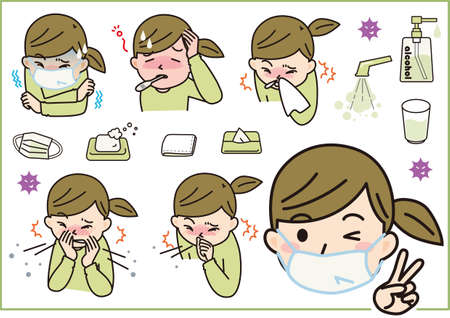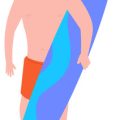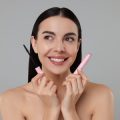1. The Truth About Daily Shampooing
Many people have heard the advice: “Dont wash your hair every day—its bad for you.” But is that really true? The answer isnt one-size-fits-all. It actually depends on your hair type, lifestyle, and even where you live. Lets break it down so you can decide whats best for your hair.
How Different Hair Types React to Daily Washing
Everyones hair is different, and how often you should shampoo really comes down to your unique texture and oil production. Heres a simple guide:
| Hair Type | Reaction to Daily Shampooing | Recommended Frequency |
|---|---|---|
| Oily or Fine Hair | Can feel greasy quickly; daily washing may be necessary | Every day or every other day |
| Normal Hair | Tolerates frequent washing without much issue | Every 2–3 days |
| Dry or Coarse Hair | Can become brittle and dry if washed too often | Once or twice a week |
| Curly or Textured Hair | Prone to dryness; daily washing strips natural oils | Once a week or less |
Lifestyle Factors That Matter Too
Your daily habits also play a big role in how often you need to shampoo. For example:
- You work out frequently: Sweat can build up on the scalp, so more frequent washing may be needed.
- You live in a humid climate: Humidity can make hair oilier faster.
- You use lots of styling products: Product buildup might require more regular cleansing.
- You have color-treated hair: You’ll want to wash less often to preserve the color.
A Quick Tip from Stylists:
If youre not shampooing daily but still want to keep your hair fresh, dry shampoo can be a game-changer. It absorbs oil and adds volume without water.
2. Do You Really Need to Switch Shampoo Brands Regularly?
Youve probably heard someone say, “Your hair gets used to your shampoo, so you need to switch it up.” It sounds logical—like your hair might build a tolerance over time—but is there any truth behind this claim, or is it just clever marketing?
What Happens When You Use the Same Shampoo for a Long Time?
Sticking with the same shampoo isnt necessarily a bad thing. If your current product is working well for your hair type and scalp condition, theres no scientific reason to switch brands. Hair is not alive like skin; it doesnt develop resistance to ingredients. However, your scalp can change due to factors like age, hormones, weather, or health—so sometimes its not the shampoo that needs changing, but rather your hair’s needs have evolved.
Why Do People Think Their Shampoo “Stops Working”?
This idea often comes from noticing changes in how hair looks or feels over time. But these changes are usually caused by:
- Product buildup: Using styling products or heavy conditioners can coat hair strands, making them feel greasy or weighed down.
- Seasonal changes: Humidity, dryness, or temperature shifts can affect how your hair reacts to products.
- Hair damage: Coloring, heat styling, or chemical treatments may change your hairs texture or porosity.
When Might Switching Shampoos Actually Help?
If you notice new issues with your scalp or hair—like dryness, oiliness, itching, or dullness—it might be time to reassess your shampoo. Here’s a quick guide to help:
| Your Hair Concern | What to Look for in a New Shampoo |
|---|---|
| Dull or heavy-feeling hair | A clarifying shampoo (use once a week) |
| Dandruff or itchy scalp | An anti-dandruff shampoo with zinc pyrithione or salicylic acid |
| Dried-out strands | A moisturizing or hydrating formula with oils or glycerin |
| Limp, oily roots | A balancing shampoo for oily scalps |
The Bottom Line on Brand Switching
You don’t need to rotate between brands just because youve been using one for a while. If your shampoo still meets your needs and keeps your scalp healthy and your hair looking good, stick with it! But if something’s changed—your lifestyle, environment, or hair condition—then switching could make sense. Just remember: it’s about finding the right formula for your current needs, not following a myth.

3. Cold Water Rinse: Miracle or Myth?
Its commonly said that rinsing with cold water adds extra shine and seals the cuticle — but lets look at what science and stylists have to say. For years, this tip has circulated in beauty blogs and salon chairs alike, but is there real truth behind it?
What the Cold Water Rinse Is Supposed to Do
The idea is that finishing your wash with a cold water rinse helps close the hair cuticle (the outer layer of the hair shaft), which supposedly:
- Makes your hair shinier
- Reduces frizz
- Locks in moisture
The Science Behind It
Hair is made of dead keratin cells, and while the cuticle can open and close slightly depending on temperature and pH levels, its not as dramatic as you might think. Warm water opens the cuticle just enough to allow cleansing and conditioning ingredients to penetrate, while cooler water can help lay the cuticle down a bit more smoothly. However, theres no solid scientific evidence showing that cold water dramatically improves shine or health.
What Experts Say
| Expert Opinion | Verdict on Cold Water Rinse |
|---|---|
| Dermatologists | No strong evidence; any effect is minimal. |
| Professional Stylists | Might help smooth the surface slightly, but wont transform your hair. |
| Hair Scientists | The effect is mostly psychological or aesthetic; not a game-changer. |
The Bottom Line for Your Routine
If you enjoy ending your shower with a burst of cold water and feel like it makes your hair smoother, go for it — it won’t hurt. But don’t expect it to replace good haircare habits like using heat protection, regular trims, or deep conditioning treatments. Ultimately, a cold rinse might give you a slight boost in shine, but it’s not a miracle fix.
4. Does Trimming Make Hair Grow Faster?
This is one of the most common hair myths out there—and it’s time to set the record straight. Many people believe that getting frequent trims will actually make their hair grow faster. While trimming does play a role in your hair’s overall health, it doesn’t directly affect how fast your hair grows from the scalp.
Understanding Hair Growth
Hair growth happens at the scalp level, from follicles beneath the skin. On average, hair grows about half an inch per month, or roughly six inches per year, regardless of whether you trim it or not. That rate is mostly influenced by genetics, hormones, diet, and general health—not how often you cut your ends.
What Trimming Actually Does
Even though trimming doesn’t speed up growth, it helps prevent split ends and breakage, which can make your hair appear healthier and longer over time. When you skip trims for too long, split ends can travel up the hair shaft and cause more damage, leading to more breakage and a shorter appearance overall.
Hair Trimming: Myths vs Facts
| Myth | Fact |
|---|---|
| Trimming makes hair grow faster | Growth happens at the scalp—trims don’t impact this process |
| You don’t need trims if you want long hair | Skipping trims can lead to split ends and breakage |
| The more you trim, the thicker your hair gets | Trimming doesn’t change thickness—it only removes damaged ends |
So Why Keep Trimming?
Regular trims every 8–12 weeks help maintain the shape of your haircut and remove dry or damaged ends. This keeps your hair looking fresh, healthy, and full—even if it doesn’t technically grow any faster.
Quick Tip:
If youre trying to grow your hair out, ask your stylist for a “dusting” instead of a full trim. That way, only the very tips are cut off—just enough to keep things healthy without losing length.
5. Oily Hair Origins: Genetics vs. Hygiene
Is your oily hair a result of skipping washes, or is something deeper going on? Many people assume that greasy roots are caused by poor hygiene, but the truth is more complex. Let’s break down the real reasons behind oily hair and bust this common myth once and for all.
It’s Not Just About Washing
While regular shampooing can help manage oil, overwashing can actually make things worse. Stripping your scalp of natural oils causes it to produce even more sebum as a defense mechanism. So if youre washing your hair every day thinking its helping, you might be triggering more oil production instead.
Main Causes of Oily Hair
Oily hair isnt always about how often you wash it. Several internal and external factors contribute to oiliness:
| Factor | Description |
|---|---|
| Genetics | If your parents have oily scalps, chances are you will too. Oil production is often inherited. |
| Hormones | Hormonal fluctuations during puberty, menstruation, or stress can increase sebum production. |
| Skin Type | People with naturally oily skin usually have oilier scalps too. |
| Diet | Diets high in processed foods or saturated fats may influence oil production. |
| Product Buildup | Using heavy styling products or not rinsing thoroughly can leave residue that mimics or attracts oil. |
How to Manage Oily Hair the Smart Way
- Wash strategically: Try every other day instead of daily. Use a gentle, sulfate-free shampoo formulated for oily hair.
- Avoid touching your scalp: Hands carry oils and dirt that can transfer to your hair.
- Rinse well: Make sure no product is left behind after washing.
- Choose the right products: Look for “clarifying” or “lightweight” labels on shampoos and conditioners.
- Be mindful of diet: Incorporate more fresh fruits, veggies, and water into your meals.
Busting the Myth:
You don’t have oily hair just because you’re not washing enough. In many cases, it’s all about biology and lifestyle. Understanding your own hair type and adjusting your routine accordingly is key to keeping grease under control without over-washing.


